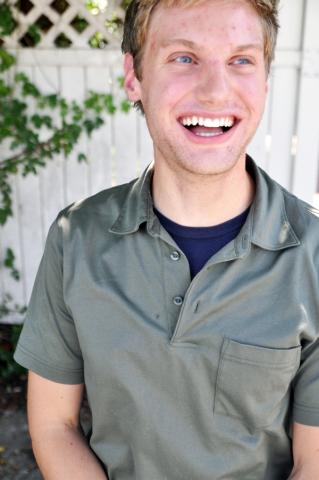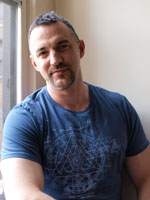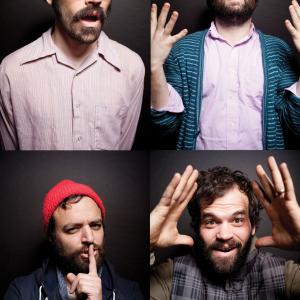
Ever since his grade school days when he tried to sell “facts” at a garage sale, Evan has been allured by the idea of learning more about the world around him and letting others in on what he found out. Eventually, he established his own radio station using a karaoke machine, but this also failed to reach a large audience, and cassette tapes were too expensive.
After a few years, a transplant from Ohio to Pennsylvania and a continued failure in the garage-sale-fact-selling business, Evan began his education at Penn State University. While at Penn State, Evan worked for a local TV station, an investment research start-up and covered state politics for The Daily Collegian. His passion for exploring the world was also fanned into flames during this time by a semester spent abroad in Merida, Venezuela and an international reporting class which landed him in Shanghai, where he reported on education for The McClatchy Company.
Following his four years at Penn State, Evan received a B.A. in journalism, a B.A. in Spanish and a B.S. in international studies. His enthusiasm for journalism lead him to spend his post-graduation summer working for the Pennsylvania Legislative Correspondents Association, where he reported on Pennsylvania state politics for the state’s four largest newspapers — The Philadelphia Inquirer, the Pittsburgh Post-Gazette, the Pittsburgh Tribune-Review and The Morning Call.
During this whole time, Evan realized that at the root of all the experiences he had enjoyed, both through his education and his work, was the concept of justice and truth — the idea of speaking the truth, so that what was wrong could be made right.
The very day that he stumbled upon Sojourners, he knew immediately that it was where he should be after graduation. Apparently, both his superiors at Sojourners and God agreed. Now, he’s looking forward to what this next year will teach him and what he can bring to the table to advance the Sojourners’ mission.
Posts By This Author
Review of mewithoutYou’s Ten Stories
Aaron Weiss reached his arm into his backpack, which was laid atop a swath of Sharpie graffiti tattooed on our table.
Ever since he walked on the stage earlier that night, I was imagining what was in that backpack, which bulged enough that the zipper didn’t close all the way. The bar we were in was dark and loud. It was 1:00 am. Most of the folks who had come to see mewithoutYou had already left for the night
“You’ll get a kick out of this,” he said.
He pulled out a hymn book much wider than it was tall.
“The Sacred Harp” was written across its brown cover in foil-stamped lettering. Weiss began to explain Sacred Harp singing to me, but he couldn’t go into too much detail; it was getting late, and there were a group of men waiting to donate veggie oil to the band — they use it to fuel their tour bus.
Sacred Harp music, I learned later, is sung a cappella with four sections — tenor, alto, treble and bass — forming the boarders of a square. But the singers don’t face out to an audience; they are turned toward the center of the square. The very center, where only one person stands, is the focal point. As our conversation began to drift to the subjects of performance and fame, it seemed fitting for Weiss to be carrying this book.
For LGBT Youth, a Shelter From the Streets of Rejection
[Editors' note: This post is part of a series over the last few weeks on youth homelessness. In the September/October issue of Sojourners magazine, the Ali Forney Center and the Gay and Lesbian Alliance Against Defamation (GLAAD) ran an ad to raise awareness of the serious problem of LGBT youth homelessness.]
homelessness.]
Fact 1) About 40 percent of the homeless youth in the United States identify as lesbian, gay, bisexual, or transgender.
Fact 2) One in four teens rejected by their families becomes homeless.
Fact 3) Parents who identify as strongly religious are three times more likely to reject their children.
Yet for Carl Siciliano, founder and president of the Ali Forney Center, these aren't just facts -- they are his daily life.
